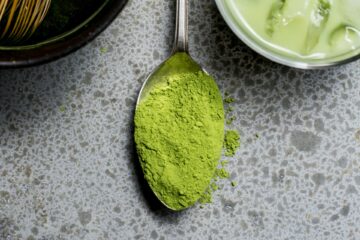After undergoing wisdom teeth removal surgery, one of the most common questions that patients have is, “Can I eat cookies?” The thought of indulging in a sweet treat can be tempting, especially when recovering from a dental procedure. Sometimes a soft, gooey chocolate chunk cookie can be just the thing you need to keep you entertained while you watch Netflix, read, or scroll through your phone.
After undergoing wisdom teeth removal surgery, one of the most common questions that patients have is, “Can I eat cookies?” The thought of indulging in a sweet treat can be tempting, especially when recovering from a dental procedure. Sometimes a soft, gooey chocolate chunk cookie can be just the thing you need to keep you entertained while you watch Netflix, read, or scroll through your phone.
We’re going to explain why it’s okay to eat cookies after having your wisdom teeth removed, as long as you take the proper precautions. That way, you won’t have to stick just to liquids for the next few days – there’s always room for more dessert.
Immediate Post-Surgery Care
You need to prioritize your oral care after wisdom tooth surgery to ensure proper healing and minimize the risk of complications. And while your dentist or oral surgeon may have given you a quick rundown while you were still on painkillers, here’s a quick reminder on how the healing process works.
How Your Wisdom Teeth Heal
Generally, the initial healing period lasts about 1-2 weeks, during which you may experience swelling, pain, and discomfort. The following stages outline the typical healing process:
- Blood Clot Formation – After the extraction, a blood clot forms in the empty socket to protect the underlying bone and nerves. It is crucial to avoid dislodging or damaging this clot, as it can lead to a painful condition called dry socket, which can be even more painful than the original surgery.
- Tissue Regeneration – Over time, the blood clot is gradually replaced by granulation tissue, which helps in the formation of new bone and gum tissue.
- Bone Healing – The extraction site starts to heal from the bottom up as new bone forms to replace the removed wisdom tooth.
- Gum Healing – Simultaneously, the gum tissue surrounding the extraction site heals and closes up.
Dietary Guidelines
During the immediate post-surgery period, it is important to follow specific dietary guidelines to promote healing and reduce the risk of complications. Here are some general recommendations:
- Stick to Soft Foods – Opt for soft and easily chewable foods to avoid putting excess pressure on the extraction site. Examples include mashed potatoes, yogurt, soups, smoothies, and soft fruits. They can also include soft, freshly-baked cookies, as long as they require minimal chewing. Just remember to take small bites.
- Avoid Spicy and Acidic Foods – Spicy and acidic foods can irritate the extraction site and cause discomfort. It’s best to avoid these types of foods until you have fully healed.
- Say No to Crunchy and Hard Foods – Foods that are crunchy or require significant chewing can disturb the blood clot and impede the healing process. It is essential to avoid hard cookies, nuts, chips, and other similar items during this initial phase.
- Be Mindful of Temperature – Consuming excessively hot or cold foods can increase sensitivity and discomfort in the surgical area. Opt for lukewarm or room temperature foods and beverages.
- Stay Hydrated – Drinking plenty of fluids is essential to prevent dehydration, aid in healing, and flush out any residual debris from the surgery. However, avoid using straws, as the suction can dislodge the blood clot.
The Big Dilemma – Eating Cookies After Wisdom Teeth Surgery
The big dilemma that arises after wisdom teeth surgery is whether or not you can enjoy cookies during your recovery. Everyone wants to eat cookies, all the time – this is how.
Soft vs. Hard Cookies
When it comes to choosing cookies to eat after wisdom teeth surgery, the texture plays a significant role. Soft cookies are much more suitable during the initial healing phase because they are easier to chew and less likely to cause discomfort or damage to the surgical site.
Soft cookies, such as oatmeal, sugar, or shortbread cookies, tend to be less crunchy and require minimal effort to break down. These types of cookies are often baked longer in the oven and contain moist ingredients, resulting in a softer texture that is gentler on your healing gums. Plus, they don’t contain chocolate chips or nuts which are hard to chew, especially while regaining feeling in your jaw.
Hard & crunchy cookies, such as biscotti or ginger snaps, may pose challenges during the initial recovery period. These cookies require more forceful chewing and can potentially dislodge the blood clot or irritate the surgical site, leading to complications such as dry socket or delayed healing. They can also get caught in your braces if you’re not careful.
If you are craving the taste and texture of crunchy cookies, consider waiting until you have recovered significantly and your dentist gives you the green light. Remember to gradually introduce them into your diet, starting with small, easily chewable portions and ensuring that you experience no pain or discomfort during and after consumption.
Listen to your body and pay attention to any signs of discomfort or adverse reactions when eating crunchy cookies. If you experience any pain, swelling, or bleeding, stop consuming them immediately and consult with your dental professional.
Sweet & Chocolatey Modifications
After wisdom teeth surgery, you may still crave the sweet and chocolatey goodness of cookies. Fortunately, there are several modifications you can make to enjoy these treats while taking care of your healing gums. In this section, we will explore some sweet and chocolatey modifications for cookies that are suitable for your post-surgery diet.
Soften the Cookies
One way to make cookies easier to eat after wisdom teeth surgery is by softening them. You can do this a few different ways:
- Dunking in Milk – Soaking cookies in milk for a few seconds can help soften their texture, making them easier to chew and less likely to cause discomfort. Opt for a dairy or non-dairy alternative that suits your dietary preferences.
- Microwaving – Place cookies in the microwave for a few seconds to gently warm them and soften their texture. Be cautious not to overheat them, as this can result in a soggy consistency.
- Moisture-retaining Containers – Storing cookies in airtight containers with a slice of bread can help retain moisture, resulting in softer cookies over time. The bread acts as a moisture source, keeping the cookies fresh and soft.
Alternative Sweet Treats
If you find that cookies are still too challenging to consume during your recovery, there are alternative sweet treats that you can indulge in. Consider these options:
- Puddings and Custards – Smooth and creamy desserts like puddings and custards can satisfy your sweet tooth without putting strain on your healing gums. Choose flavors that you enjoy and opt for options without any crunchy toppings.
- Ice Cream and Sorbet – Cold treats like ice cream and sorbet can provide relief from any swelling or discomfort while still offering a delightful sweetness. Opt for softer flavors or varieties that do not contain any hard mix-ins.
- Smoothies and Milkshakes – Blending together fruits, yogurt, and milk or a non-dairy alternative can create a refreshing and nutritious sweet treat. Customize your smoothies or milkshakes with ingredients that suit your taste preferences.
Remember to choose options that are gentle on your healing gums and avoid any additions that may cause irritation or discomfort.
When Can I Eat Cookies After Wisdom Teeth Surgery?
Everyone’s healing timeline is different for wisdom tooth surgery. While some people may experience very little pain after 24 hours, others may endure pain for up to a week. As such, it’s entirely up to your comfort levels when you decide to eat cookies again. But regardless of whether it’s the next day or next week, there are a few things to consider.
Precautions When Reintroducing Cookies
It is important to follow these precautions when considering the reintroduction of cookies into your diet after wisdom teeth surgery:
- Consult with Your Dentist – Before adding cookies back into your diet, consult with your dentist or oral surgeon. They will evaluate your healing progress and provide guidance on when it is safe to consume cookies based on your specific case.
- Gradual Reintroduction – Begin by consuming small portions of soft cookies and gradually increase the quantity as you feel comfortable. Monitor how your gums react to the cookies and adjust accordingly.
- Chew with Caution – Take small bites and chew slowly, being mindful of any discomfort or pain. If you experience any sensitivity or pain while chewing cookies, it may indicate that you need to wait a little longer before reintroducing them.
- Avoid Hard and Crunchy Additions – Even if you have reached a point where you can consume cookies, it is still advisable to avoid any hard or crunchy additions such as nuts or candies. These can potentially pose a risk to your healing gums.
Signs to Watch For
As you start to incorporate cookies back into your diet, it is important to pay attention to any signs that may indicate a problem with your healing process. If you experience any of the following, contact your dentist or oral surgeon:
- Persistent Pain – If you have persistent or worsening pain in the extraction site while eating cookies, it may indicate an issue with the healing process. This should be evaluated by your dental professional.
- Swelling or Redness – Any excessive swelling or redness around the extraction site could be a sign of infection or inflammation. This should be assessed by your dentist to prevent further complications.
- Bleeding – If you notice any prolonged or excessive bleeding from the surgical area while eating cookies, it is important to seek immediate dental attention.
- Persistent Bad Breath or Unpleasant Taste – Unpleasant breath or taste in your mouth that persists even after maintaining proper oral hygiene could indicate an infection or other complication.
Remember to closely monitor these signs and seek professional advice if you have any concerns during your recovery process. And if you decide to eat cookies, be safe and enjoy satisfying your sweet tooth!




